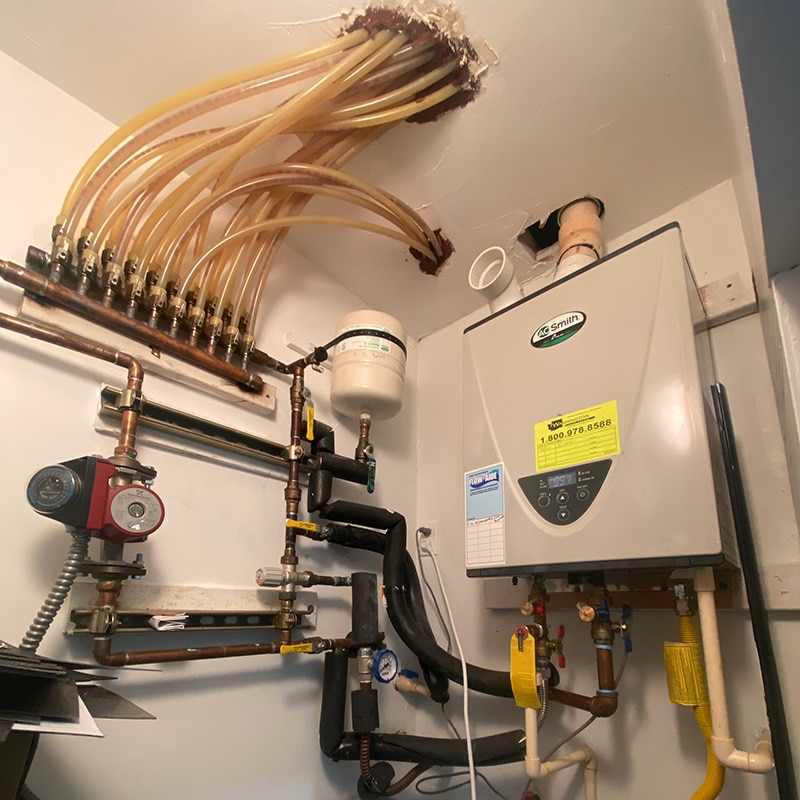Radiant heating is growing in popularity because it’s a clean, quiet, efficient, dependable, and cost-effective way to heat your home in the winter. With radiant heating, heat comes from panels installed in floors, walls or ceilings. Steam or hot-water pipes are placed under the floor material, behind the walls or in the ceilings, delivering heat to the surrounding space, quietly and invisibly, in a constant, uniform way. Check out the various benefits of Radiant heating and why you should upgrade for your home below!
Consistent/Warm Temperature
Since warm air rises, radiant floor heating is the perfect way to deliver a consistent temperature throughout a home. The heat that the floors emit will travel upwards, thus warming the whole room to an even temperature.
Quiet Heating
Radiant heating systems are entirely quiet. Unlike forced-air systems, you won’t hear vents turning on and off all day, and no more clinging radiators either — just a silent, warm home.
Energy-Efficient
Radiant heating is more efficient than baseboard and forced-air heating because it eliminates duct losses. And, while traditional heaters are usually cranked to 149-167 Fahrenheit, floor radiant heating runs at 84 degrees Fahrenheit. For that reason, it consumes less energy.
No Need for Ductwork
There is no need for ductwork for radiant heating to work properly. No ductwork means one less major thing to worry about during annual maintenance.
Floor/Ground Covering Options
Radiant floor heating works with almost every single type of floor type: laminate, tile, wood, concrete, stone, and carpet. Radiant heating isn’t just for your floors. You can also have radiant heating for your driveway and walkways
Warm Feet
Maybe the best perk of all, say goodbye to cold feet. Radiant heating means warm floors and warm feet around-the-clock, which is especially nice on those cold winter days when you’re stepping out of bed or out of the shower. Radiant heating systems offer energy-efficient and cost-effective way to heat your home while saving hundreds of dollars on home heating bills.

